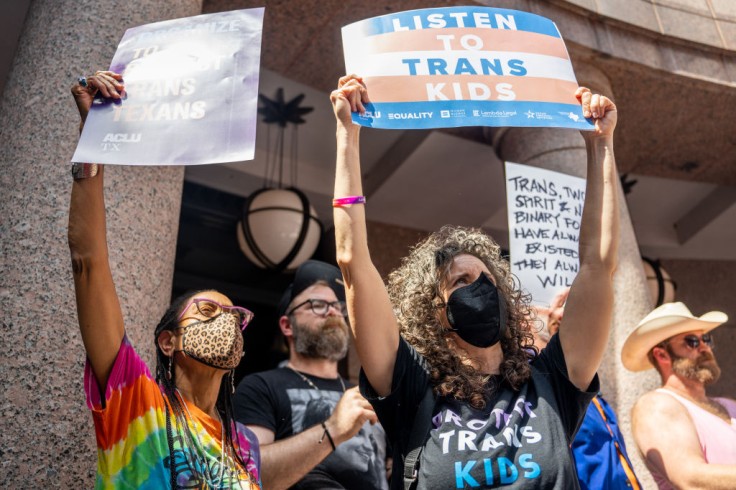
Texas Governor Greg Abbott has signed into law Senate Bill 14 (SB14), a highly contentious piece of legislation that prohibits transgender children from accessing puberty blockers and hormone therapies.
The new law, which is scheduled to take effect on September 1, 2023, has already sparked intense debate, with critics arguing that it violates the rights of transgender minors.
The signing of SB14 positions Texas among the 18 states in the U.S. that restrict transition-related care for transgender youth, according to The Hill.
Major Legislative Victory for Texas Republicans
The passage of SB14 represents a significant legislative accomplishment for the Republican Party of Texas, which has consistently opposed efforts aimed at validating transgender identities.
Authored by State Senator Donna Campbell, a Republican from New Braunfels, the bill aims to prevent transgender children from receiving puberty blockers and hormone therapies, medical treatments supported by numerous medical groups.
Transgender kids, their families, and LGBTQ advocacy organizations have fiercely opposed the new law, expressing concerns about its potential harm to transgender minors.
They argue that such medical treatments are crucial for the mental well-being of a vulnerable population already at higher risk of depression and suicide.
Critics claim that denying these treatments could lead to physical discomfort and psychological distress for transgender youth. Some individuals have even referred to the law as a form of forced detransitioning.
Proponents of the law, however, maintain that healthcare providers have taken advantage of a "social contagion" to push irreversible treatments on children who may later regret their decisions.
Supporters of SB14 also question the scientific evidence and research behind transition-related care.
Furthermore, according to the Associated Press, in a significant move, Governor Abbott became the first to order investigations into families receiving care, a decision that was later halted by a Texas judge.
Last month, the GOP-controlled Legislature sent the bill to Abbott, with Republicans in the Senate proceeding with the final vote despite objections and delays from Democrats.
As the decision was made, protests from transgender rights activists disrupted the Texas House.
Legal Challenges and Defending Transgender Rights
According to the Texas Tribune, in response to the controversial legislation, prominent organizations such as the American Civil Liberties Union (ACLU), the ACLU of Texas, Lambda Legal, and the Transgender Law Center have pledged to challenge SB14 in court.
Although they have yet to file a lawsuit, these groups have successfully sued other states over similar restrictions in the past.
Legal battles against such laws typically center around the 14th Amendment's Equal Protection Clause.
Plaintiffs argue that these laws deny transgender kids access to the same medical treatments available to their cisgender peers, thus violating their constitutional rights.
The immediate goal of these lawsuits is often to obtain preliminary injunctions that prevent the laws from taking effect while the legal proceedings unfold.
Texas has faced previous legal challenges regarding transgender rights.
In a separate case, the ACLU and Lambda Legal successfully sued the state last year, halting child abuse investigations into parents who provided their transgender children with access to transition-related care.
The appeal filed by impeached Attorney General Ken Paxton is still awaiting a ruling from the 3rd Court of Appeals.
The signing of SB14 in Texas has ignited a fierce debate over the rights and healthcare of transgender children.
The impact of SB14 will undoubtedly be closely monitored as the legal battle unfolds and its effects on the transgender community in Texas become more apparent.